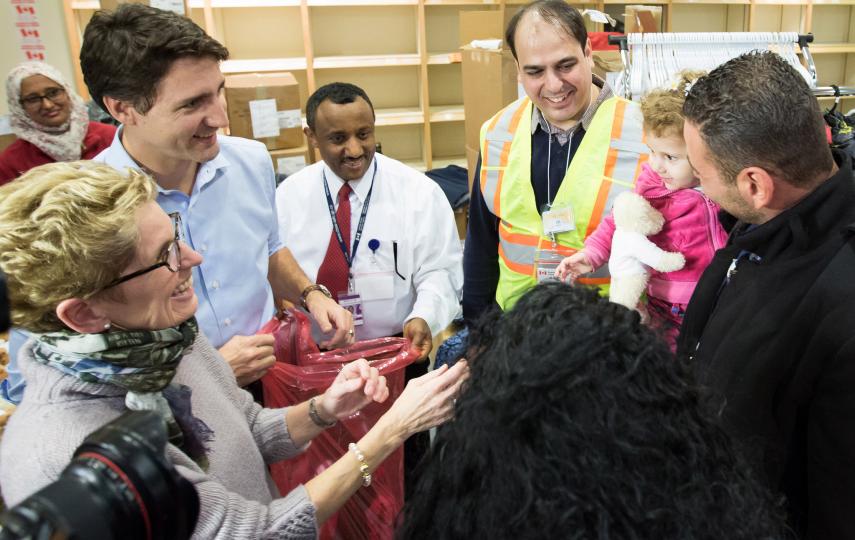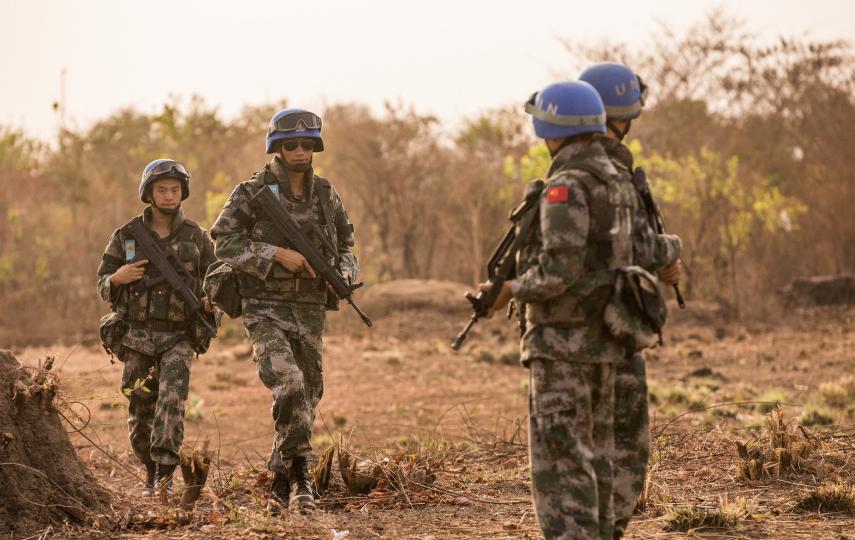After the shock win in the US presidential election of climate change denialist Donald Trump, what was expected to be an uneventful round of UN talks in Marrakesh has suddenly taken on far greater importance.
Behind closed doors, diplomats are scrambling to anticipate Trump’s next move. What was billed as a technical conference on the procedural issues of implementing the Paris Agreement – which came into force just this month – is now being cast as a desperate attempt to safeguard global action.
During his campaign, Trump, who once tweeted that climate change was a hoax invented by the Chinese to make US manufacturing less competitive, repeatedly pledged that the US would scrap its climate aid budget and “cancel” the Paris Agreement. The landmark deal, setting the legal framework for global carbon emission reduction, has been signed by 195 countries, and is strongly supported by outgoing US President Barack Obama.
Bypassing Paris
Early signs aren’t great. Myron Ebell, a “climate contrarian”, is expected to play a leading role in formulating Trump’s policy, as head of the Environmental Protection Agency. And senior members of the president-elect’s transition team are reportedly already exploring how to pull out of the Paris deal as rapidly as possible, bypassing what is otherwise officially a four-year procedure.
But what Trump’s policy positions actually will be once he takes office, as on a whole range of key issues, remains frustratingly unclear.
The mood in Marrakesh is nevertheless grim. Urgent discussions involving senior officials are taking place as the conference enters its second and final week to try to forestall the impact of a US administration potentially prepared to defy the global consensus.

Speaking under condition of anonymity, a senior negotiator said that one option being mulled is the introduction of trade penalties for countries that aren’t members of the Paris Agreement, which has been ratified by more than 100 nations.
It’s a tactic that has proved successful in the past. Under the Montreal Protocol, launched to control dangerous ozone depleting gases, countries are bound by so-called “non-party trade provisions” that require them to restrict their trade in hydrofluorocarbons (HFCs) with non-parties.
“In other words, if the United States does not ratify the amendment, it could be blocked from importing or exporting HFCs, isolating itself from global trade in these substances during the gradual phasedown of their use,” said Avipsa Mahapatra, at the Environmental Investigation Agency, which tackles environmental crimes.
The system has contributed to the high level of compliance under the Montreal Protocol, and according to some, could also be replicated for the Paris Agreement.
But there are concerns that too-strict trade barriers risk being counterproductive. It could encourage some member countries to pull out of the Paris deal for the sake of trading freely with a key partner like the US.
“It’s an unrealistic prospect,” said Kevin Fay, executive director of the Alliance for Responsible Atmospheric Policy, an industry coalition. “Near-term pressure tactics would only backfire. Trump would just respond to fire with fire.”
Making a deal
Fay doesn’t believe the Paris agreement will be won or lost in the next two months before Trump enters office. Instead, he pins his hopes on properly laying out the arguments on climate action “because Trump’s understanding of this issue is very shallow”.
Identifying areas where a good deal for the US can be found may also convince Trump and his team to reconsider their stance on climate action, he added.
Although key players in Marrakesh officially argue the Paris deal can survive even if the US pulls out, it is by now clear that a radical shift in international relations is already under way.
Trade agreements and new alliances will shape the future of global climate action, and diplomats at the UN climate talks are thinking ahead.
“The EU, China and other [UN Framework Convention on Climate Change] members have already made clear that they intend to move ahead with their commitments regardless of what president-elect Trump does,” said Alden Meyer, director of strategy and policy at the Union of Concerned Scientists.
“If the US really pulls out of the Paris Agreement, you might start to see partnerships between European and Asian countries that leave out major US players who don’t have any climate regime in place,” he noted.
A decade ago, climate economist Nicholas Stern proposed a carbon tax and trade regulation as an essential foundation for a global climate change policy.
The European Union has a longstanding emission trading scheme, and China is about to launch its own nationwide system, with technical assistance from European experts. States such as California, Ontario and Quebec are actively engaged in carbon markets, so new alliances could take shape on both sides of the Atlantic, bypassing Washington.
Pressure points
Officials in Marrakesh are also suggesting that the security and political implications of climate change may have some leverage over Washington. Syria is often cited as an example of a crisis that escalated in part due to climate change-related issues (extreme drought), a case they said that could be made to Trump’s advisers when in place.
“It’s early days, but I am sure there is a lot of behind-the-scenes discussion around the trade implications of the new US climate agenda and the possibility of incentivising the adoption of an aggressive climate regime,” said Meyer.
The weight of public opinion, built up over the past 20 years in support of the green economy, should also not be underestimated. “There is a strong ground-up momentum on climate action in the US and globally, that any country or world leader would be foolish to question,” noted climate investigator Mahapatra.
She added that both the Paris Agreement and the Kigali amendment, a recent update to the Montreal Protocol that is believed to be key to staving off nearly 0.5C of global warming, have broad support from the private sector and civil society alike, “and is an absolute no-brainer for the climate and the US economy”.
Trump has already managed to hijack Marrakesh. But what’s all the more galling for world leaders and officials attending this week is that nobody knows what that means for the climate agreement when the former tycoon and TV celebrity is inaugurated in January next year.
A real-time climate data explorer
ldb/oa/ag







